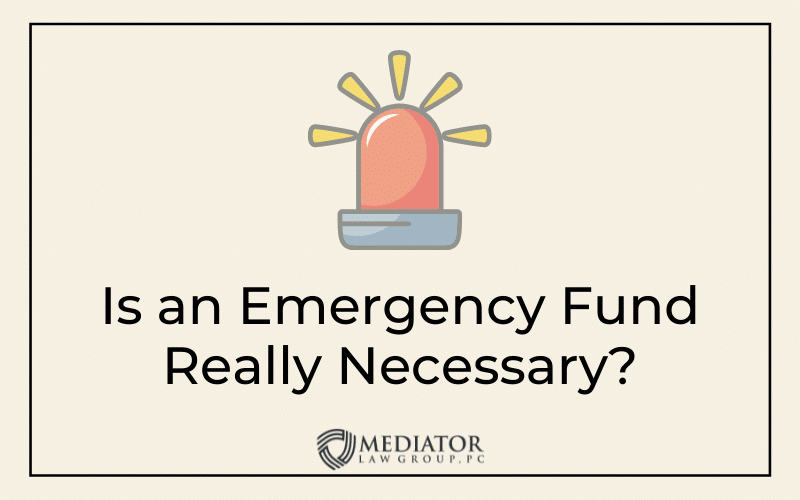Life Happens. In two words we are able to describe the importance of having an emergency fund. From a broken bone to a layoff, emergencies come and go, and sometimes, they are here to stay and change our lives forever. But, what exactly is an emergency fund and how can we make one? And more importantly, do we really need one?
What is an Emergency Fund?
An emergency fund is basically money you set aside or save that can help you survive and cover the financial surprises life throws your way. This is super important to have because when we are facing an emergency, most of the time we don’t have the time to think, save, and make a decision. These unexpected events can be stressful and costly, especially if it means a trip to the hospital or months without a job. Many people make emergency funds that can last them weeks, months, or even years. But how can we make a sturdy fund that can last us that long?
Where To Start?
Since most experts think that making an emergency fund that lasts us about 3-6 months is the best choice, this is what you should have in mind before saving money. Start by estimating your costs for critical expenses, such as housing, food, health care, utilities, transportation, personal expenses, and debt. After calculating the most important expenses, multiply that times the number of months you want to create your emergency fund for, and voilá, you are finished. Well, you are just starting out with the basics, now comes the “saving part”. Most people find this step challenging but, try to save a bit each month until you have reached your goal. And remember, DO NOT use that emergency money for anything but a real emergency. Coffee at Starbucks does not count as an emergency.
Now, not everyone can save 3 to 6 months of basic expenses. And if we find ourselves struggling, it’s time to be realistic. What can you do instead? Try building up to it by saving smaller amounts on a regular basis, maybe $5 per day or $25 per week. If you keep this up, over time you will eventually meet your goal! Let’s put an example: Say you set aside $25 each week in your emergency fund. Each year you’ll be saving $1,300! And if you increase that amount to $50 per week, you could save up to $2,600 per year! Want to increase it a bit more? $75 per week makes $3,900 at the end of the year! When breaking up smaller portions of money each week, you won’t even feel the hassle of saving, just the benefits!
Why are they so important?
Are you currently struggling with debt? It may be a student loan, a mortgage, or even credit card debt. If so, then you more than anyone should understand the importance of having an emergency fund. This can help you stop adding to your debt whenever a financial emergency arrives. Instead of taking out a loan, dip into your emergency fund for these stressful occasions and save yourself that extra debt! Now, let’s say you don’t have any debt. Should you still consider having an emergency fund?
YES! We cannot stress enough the importance of having one, with or without debt. There are other situations that make it hard to pay a financial emergency. Like what? For example, having only one income, you’re a subcontractor, self-employed, or you live away from family. All this can make it even more difficult to pay off an emergency medical bill or even a car incident. It’s best to be safe than sorry!
What Is An Emergency Fund? Review
Life happens. And unfortunately, we are not always prepared financially to go through any type of emergency that may come our way. The best thing we can do for ourselves and our loved ones is to create an emergency fund that could help us survive the tough times we may face ahead. For more information on how you can create an emergency fund, follow us on Instagram @mediatorlawgroup and contact us today!







